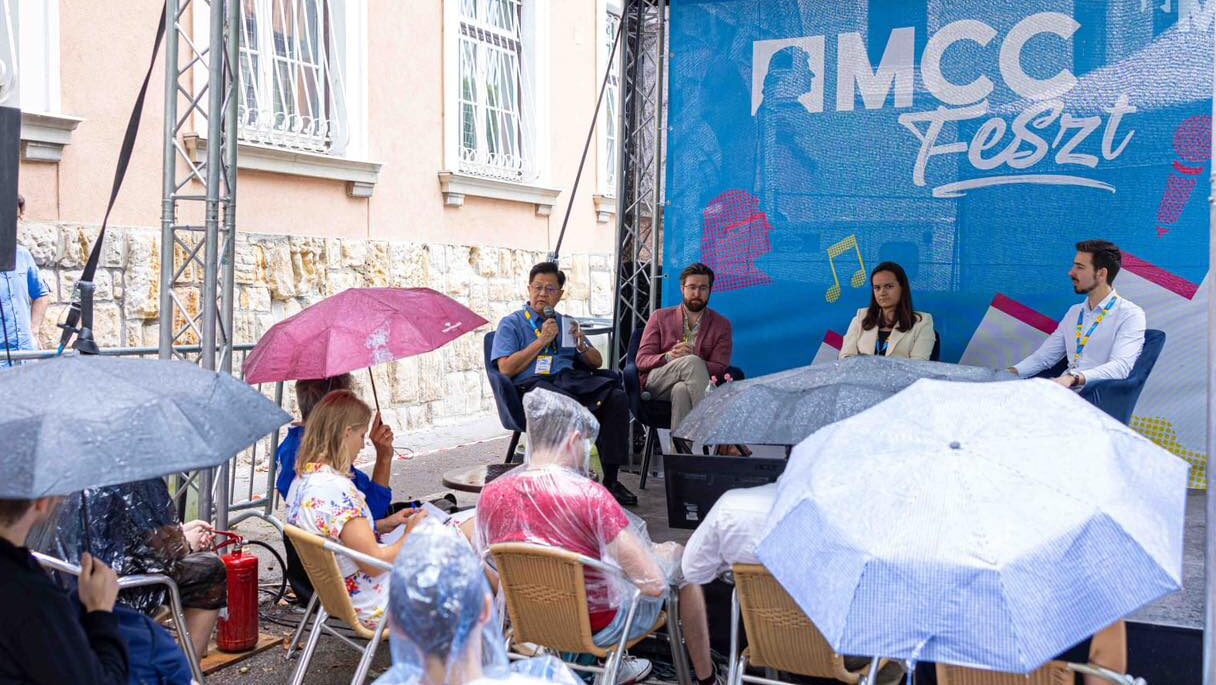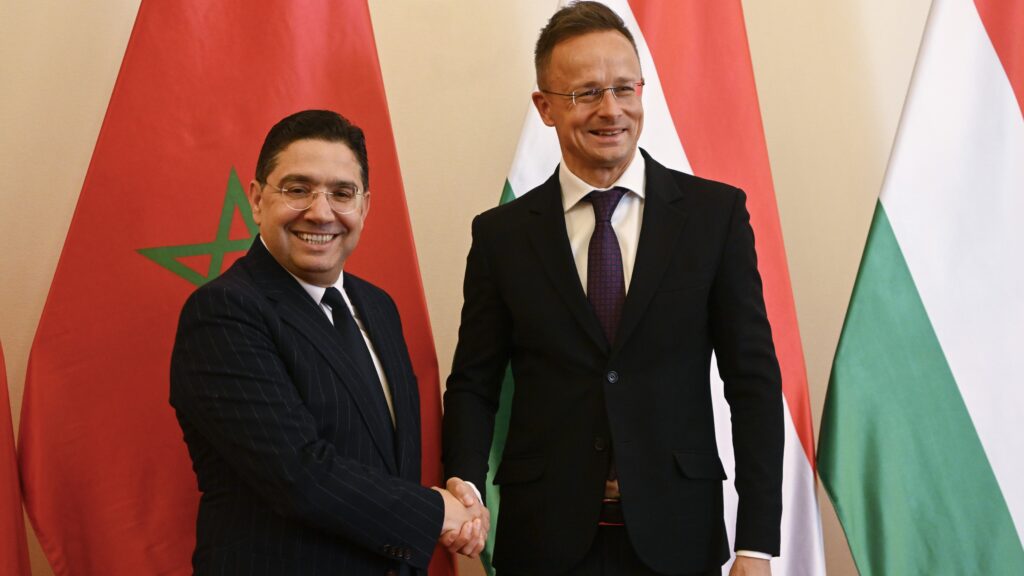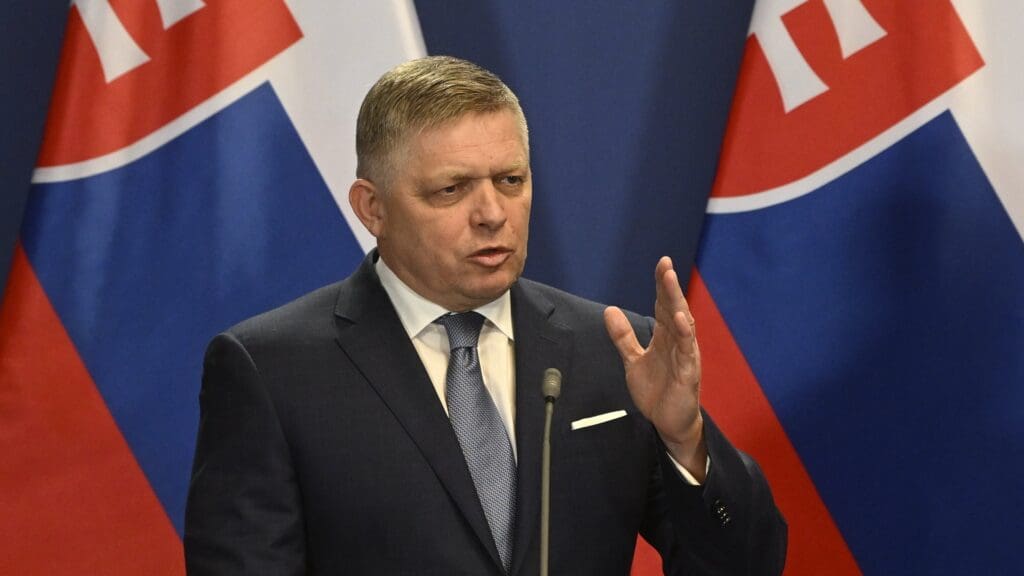The second day of this year’s MCC Feszt began with a particularly exciting and engaging panel discussion titled ‘The Road to Growth: A Handbook for International Scaling of Scaleups.’ The one-hour session featured internationally renowned experts in the field, including Karolina Wilk-Tryjanowska, Director of the Founder Institute Poland and head of the Zenith AI ecosystem; Philip Pilkington, a macroeconomist, investment specialist, and guest lecturer at Mathias Corvinus College (MCC); and Bernard Yeung, a Singaporean economist and former Dean of NUS Business School, who shared their extensive experience in investment and entrepreneurship. The conversation was moderated by Viktor Lázár, research project leader at the Centre for Next Technological Futures, Mathias Corvinus Collegium.
First, the panellists sought to answer the question of what the key to international expansion is and how a startup can successfully enter the market of another country. According to Wilk-Tryjanowska, the most important factor is comprehensive customer research. She also emphasized that success requires considering the differences in culture, legal regulations, and the investor and business environment between the target country and the company’s existing market.
Philip Pilkington echoed similar sentiments, stating that one of the keys to success is a thorough market analysis. He added that the likelihood of
successful expansion increases if the target country is culturally and geographically closer to the country of origin.
For instance, a British startup is much more likely to expand successfully in Ireland than in Hungary.
Bernard Yeung highlighted that entrepreneurship is about ‘filling the void.’ He stressed the importance of having a gap-filling idea, a solid business plan, an effective team, and confidence. According to the Singaporean economist, confidence is the hardest element to maintain when expanding abroad. Yeung outlined a four-dimensional framework that all entrepreneurs should consider when venturing into international markets. The four elements are cultural differences, administrative differences, geographical distance, and economic distance, collectively known by the acronym CAGE.
The speakers agreed that having a reliable partner in the target country who can manage the business on the ground is essential for successful expansion abroad. In this regard, Philip Pilkington noted that one should not be intimidated if a larger company already present in the country offers a partnership in exchange for a stake in the business. ‘It is better to own 50 per cent of a 100 million dollar business than 100 per cent of a 10 million dollar business,’ he pointed out.
According to Yeung, it is important to encourage and support the partner in the target country not only financially but also morally, and to grant them the autonomy to act independently.
Regarding how different stakeholders, such as governments, venture capitalists, and universities, should support startups, Wilk-Tryjanowska noted that in this regard,
the business environment has significantly improved compared to ten years ago.
However, there is still room for improvement. She highlighted the importance of continuously monitoring changing needs and, if necessary, adjusting legislation to support these evolving requirements.
Bernard Yeung stated that leading politicians should focus on creating an ecosystem that fosters value adding systemic innovation. He pointed out that this requires the involvement of all actors, including government, universities, teachers, scientists, and investors. Using Singapore as an example, he highlighted the importance of creating an atmosphere where entrepreneurship becomes a fundamental aspiration for people. For this to occur, it is crucial to establish the connectivity that successful entrepreneurial societies possess, such as those in Israel, Silicon Valley, or Shenzhen.
Related articles:








